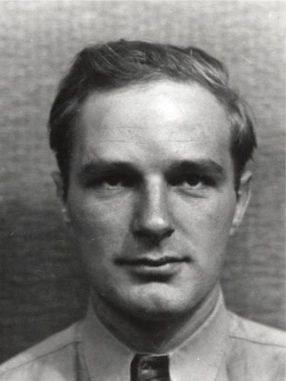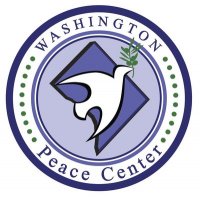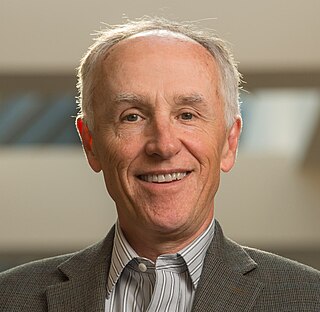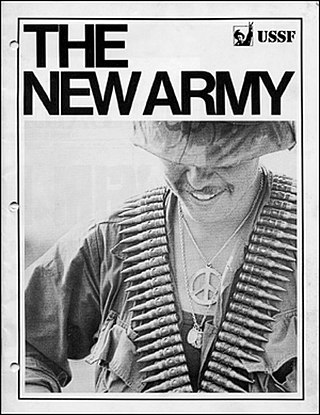Related Research Articles
The War Resisters League (WRL) is the oldest secular pacifist organization in the United States, having been founded in 1923.

David T. Dellinger was an American pacifist and an activist for nonviolent social change. Although active beginning in the early 1940s, Dellinger reached peak prominence as one of the Chicago Seven, who were put on trial in 1969.
Peace Action is a peace organization whose focus is on preventing the deployment of nuclear weapons in space, thwarting weapons sales to countries with human rights violations, and promoting a new United States foreign policy based on common security and peaceful resolution to international conflicts.
A teach-in is similar to a general educational forum on any complicated issue, usually an issue involving current political affairs. The main difference between a teach-in and a seminar is the refusal to limit the discussion to a specific time frame or a strict academic scope. Teach-ins are meant to be practical, participatory, and oriented toward action. While they include experts lecturing on their area of expertise, discussion and questions from the audience are welcome, even mid-lecture. "Teach-ins" were popularized during the U.S. government's involvement in Vietnam. The first teach-in, which was held overnight at the University of Michigan in March 1965, began with a discussion of the Vietnam War draft and ended in the early morning with a speech by philosopher Arnold Kaufman.

Opposition to United States involvement in the Vietnam War began in 1965 with demonstrations against the escalating role of the United States in the war. Over the next several years, these demonstrations grew into a social movement which was incorporated into the broader counterculture of the 1960s.

The Women's International League for Peace and Freedom (WILPF) is a non-profit non-governmental organization working "to bring together women of different political views and philosophical and religious backgrounds determined to study and make known the causes of war and work for a permanent peace" and to unite women worldwide who oppose oppression and exploitation. WILPF has national sections in 37 countries.
Staughton Craig Lynd was an American political activist, author, and lawyer. His involvement in social justice causes brought him into contact with some of the nation's most influential activists, including Howard Zinn, Tom Hayden, A. J. Muste, and David Dellinger.

Vietnam Veterans Against the War (VVAW) is an American tax-exempt non-profit organization and corporation founded in 1967 to oppose the United States policy and participation in the Vietnam War. VVAW is a national veterans' organization that campaigns for peace, justice, and the rights of all United States military veterans. It publishes a twice-yearly newsletter, The Veteran; this was earlier published more frequently as 1st Casualty (1971–1972) and then as Winter Soldier (1973–1975).
The 1971 May Day protests against the Vietnam War were a series of large-scale civil disobedience actions in Washington, D.C., protesting the United States' continuing involvement in the Vietnam War. The protests began on Monday morning, May 3 and ended on May 5. In all, more than 12,000 people were arrested, in what was the largest mass arrest in U.S. history.
The Spring Mobilization Committee to End the War in Vietnam, which became the National Mobilization Committee to End the War in Vietnam, was a coalition of American antiwar activists formed in November 1966 to organize large demonstrations in opposition to the Vietnam War. The organization was informally known as "the Mobe".

The Washington Peace Center was a nonprofit organization founded and located in Washington, D.C., focusing on peace and social justice. It officially closed ceased operating in 2020.

In the 1960s, several "be-ins" were held in Central Park, Manhattan, New York City to protest against various issues such as U.S. involvement in the Vietnam War and racism.

David Cortright is an American scholar and peace activist. He is a Vietnam veteran who is currently Professor Emeritus and special adviser for policy studies at the Keough School of Global Affairs and Kroc Institute for International Peace Studies at the University of Notre Dame, and the author, co-author, editor or co-editor of 22 books. Cortright has a long history of public advocacy for disarmament and the prevention of war.
Frances May Witherspoon was an American writer and activist, co-founder with Tracy Dickinson Mygatt of the War Resisters League, and executive secretary of the New York Bureau of Legal Advice, a forerunner of the American Civil Liberties Union.
George Russell Lakey is an activist, sociologist, and writer who added academic underpinning to the concept of nonviolent revolution. He also refined the practice of experiential training for activists which he calls "Direct Education". A Quaker, he has co-founded and led numerous organizations and campaigns for justice and peace.

The Concerned Officers Movement (COM) was an organization of mainly junior officers formed within the U.S. military in the early 1970s. Though its principal purpose was opposition to the U.S. involvement in the Vietnam War, it also fought for First Amendment rights within the military. It was initiated in the Washington, D.C., area by commissioned officers who were also Vietnam Veterans, but rapidly expanded throughout all branches and many bases of the U.S. military, ultimately playing an influential role in the opposition to the Vietnam War. At least two of its chapters expanded their ranks to include enlisted personnel (non-officers), in San Diego changing the group's name to Concerned Military, and in Kodiak, Alaska, to Concerned Servicemen's Movement.

GI coffeehouses were coffeehouses set up as part of the anti-war movement during the Vietnam War era as a method of fostering antiwar and anti-military sentiment within the U.S. military. They were mainly organized by civilian antiwar activists, though many GIs participated in establishing them as well. They were created in numerous cities and towns near U.S. military bases throughout the U.S as well as Germany and Japan. Due to the normal high turnover rate of GIs at military bases plus the military's response which often involved transfer, discharge and demotion, not to mention the hostility of the pro-military towns where many coffeehouses were located, most of them were short-lived, but a few survived for several years and "contributed to some of the GI movement's most significant actions". The first GI coffeehouse of the Vietnam era was set up in January 1968 and the last closed in 1974.

The United States Servicemen's Fund (USSF) was a support organization for soldier and sailor resistance to the Vietnam War and the U.S. military that was founded in late 1968 and continued through 1973. It was an "umbrella agency" that funded GI underground newspapers and GI Coffeehouses, as well as providing logistical support for the GI antiwar movement ranging from antiwar films and speakers to legal assistance and staff. USSF described itself as supporting a GI defined movement "to work for an end to the Viet Nam war" and "to eradicate the indoctrination and oppression that they see so clearly every day."
References
- ↑ Hall, Simon (2005). Peace and freedom : the civil rights and antiwar movements in the 1960s (1 ed.). Philadelphia: University of Pennsylvania Press. p. 173. ISBN 9780812219753.
- ↑ Wells, Tom (1994). The war within : America's battle over Vietnam. Berkeley, CA: University of California Press. p. 472. ISBN 9780520083677.
- ↑ "People's Coalition for Peace and Justice Records (DG 084), Swarthmore College Peace Collection". www.swarthmore.edu. Retrieved 14 June 2021.